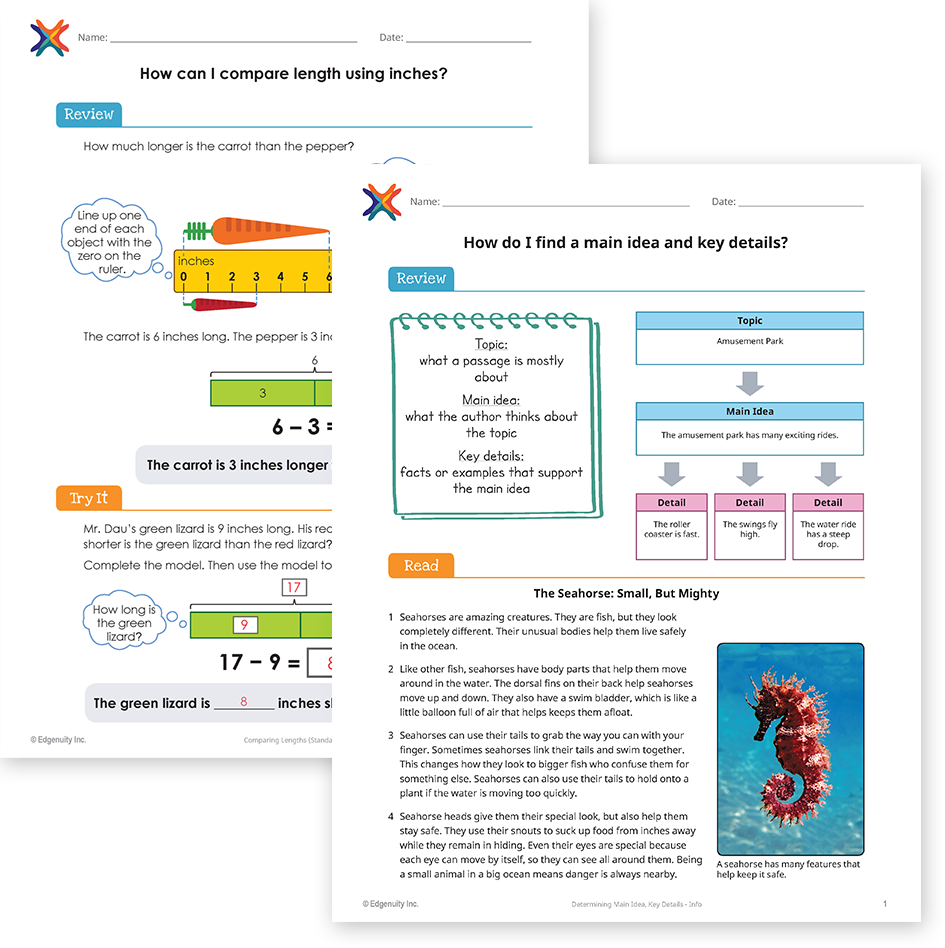
Global leaders are children with different dreams
Children with different thoughts
I am creative and I don't want to lock children into a monolithic framework.
"We will prepare them to adapt to whatever they choose to do when they go to elementary school."

 Philosophy
Philosophy
Edgenuity CL의 목표는 모든 어린이들이 영어로 듣고 말하기가 자유로운건 기본이고 다양한 지식을 습득하고, 개념과 원리 위주의 수업을 통해 다르게 생각하고 다르게 표현하는 창의 사고력을 키워 세계로 뻗어나가는 인재를 양성 하는 것 입니다.
In-Depth Learning
Contents & Lecture를 활용한 자기 주도 학습
Creativity & Communnication
주어진 주제에 대해 의견 나누기, 자신의 생각표현하기
Critical Thinking & Coolaboration
해결과제의 분석 자료를 토대로 토론과 협력을 통한 과제 해결
Creativity Plus+
주제에 대한 전방위적 접근과 사고를 한후 여러 가지 답 찾기
미국에서 만든 미국공교육 그대로 유치원에서 원어민 선생님과 함께 수업이 진행됩니다.
Egdenuity CL의 모든 프로그램은 교육연구원,전/현직교사,교장선생님등으로 구성된 40년 전통의 미국 Edgenuity에서 제작되었으며, 현재도 미국 유치/초/중/고등학교에서 사용되고 있는 검증된 프로그램입니다.
"미국에서 만들고 미국공교육 전과목을 배울수 있는 영어유치원은 Edgenuity CL 뿐입니다."
전 세계 38개국 에서 사용 하고 있는 프로그램입니다.
미국 200여개 교육청 에서 채택된 인증된 프로그램 입니다.
미국 17,000여개의 사립 및 국공립 학교에서 사용중입니다.
5,200,000명, 매년 미국 520만명의 학생들이 이 프로그램으로 학교에서 배우고 있습니다.
Programs
ENGAGING CONTENT
우리 아이들이 지치지 않고 재미있게 공부할 수 있는 수업컨텐츠는 중요합니다.
Edgenuity사의 MYPATH K–5는 다이내믹하고 재미있는 학습 환경에서 직접 교육, 지원되는 실습, 독립적인 실습 및 지속적인 숙달 검사의 점진적 릴리스 교육 모델을 기반으로 구축된 고품질 콘텐츠를 사용하고 있어 우리 아이들이 즐겁고 재미있게 학습 할 수 있습니다.
MyPath K–5 Reading
Watch the intro to our reading instructional video on comparing two stories. Lessons are designed to help students strengthen the skills they need to read more complex texts at grade level and with comprehension by focusing on the priority, high impact, and major work domains that build on reading informational text, reading literature, and reading foundationsMyPath K–5 Early Literacy
Watch the intro to our reading foundations lesson on breaking words into sounds. Students performing two or more grade levels below expectations in reading will receive instruction in phonics, previewing, self-correction when reading, reading with expression, attention to punctuation, and vocabulary development.MyPath K–5 Math
Watch the intro to our math lesson on dividing 3- and 4-digit dividends by a 2-digit number. Lessons are designed to focus on the essential skills of each grade so that students can gain strong foundations and solid conceptual understanding on how to solve problems and are ready for middle school algebra.
Actionable Insights Help Teachers Drive Outcomes
교사가 결과를 이끌어내는 데 도움이 되는 실행 가능한 통찰력
New MyPath K–5 feature enhancements give educators unparalleled insights and flexibility to drive learning outcomes, including:
A rich library of developmentally appropriate content for struggling students so they can engage with age-appropriate content even when several grades behind.
Ongoing mastery checks that adapt learning to each student’s level of understanding after initial placement to keep learning targeted towards grade-level work.Teacher Toolkits with each lesson so teachers can easily identify students who are struggling unproductively. It provides downloadable resources they can use in small groups or with the whole class.
Professional development and support help ensure you are equipped to meet your implementation goals and fully support your teachers and students.
Re-teaching lessons include both a student-facing worksheet and an answer key. They are scaffolded and have an initial review, structured practice, independent practice, and opportunities to demonstrate understanding.Reading
| No. | Domain | Lesson Title | CCSS |
| 1 | Foundational Skills |
Understanding Concepts of Print | RF.K.1.A |
| 2 | The Number of Letters in a Word | RF.K.1.B | |
| 3 | The Number of Words in a Sentence | RF.K.1.C | |
| 4 | Lowercase and Uppercase Letters | RF.K.1.D | |
| 5 | Rhyming Words | RF.K.2.A | |
| 6 | Count Syllables | RF.K.2.B | |
| 7 | Blend Sounds of l, n, j, g, and Short u | RF.K.2.C | |
| 8 | Initial Sounds of m, d, and Short a | RF.K.2.D | |
| 9 | Initial Sounds of s, p, and Short i | RF.K.2.D | |
| 10 | Sounds of qu; Hard c, z; and Short i | RF.K.2.D | |
| 11 | Sounds of v, w, and Short a | RF.K.2.D | |
| 12 | Middle and Last Sounds | RF.K.2.D | |
| 13 | Make Words | RF.K.2.E | |
| 14 | Explore the Sound of m | RF.K.3.A | |
| 15 | Explore the Sound of s | RF.K.3.A | |
| 16 | Explore the Sound of d | RF.K.3.A | |
| 17 | Explore the Sound of p | RF.K.3.A | |
| 18 | Explore the Sound of l | RF.K.3.A | |
| 19 | Explore the Sound of n | RF.K.3.A | |
| 20 | Explore the Sound of t | RF.K.3.A | |
| 21 | Explore the Sound of h | RF.K.3.A | |
| 22 | Explore the Sound of b | RF.K.3.A | |
| 23 | Explore the Sound of r | RF.K.3.A | |
| 24 | Explore the Sound of k | RF.K.3.A | |
| 25 | Explore the Sound of f | RF.K.3.A | |
| 26 | Explore the Sound of Hard g | RF.K.3.A | |
| 27 | Vowels a, i, and o | RF.K.3.B | |
| 28 | High-Frequency Words A | RF.K.3.C | |
| 29 | High-Frequency Words B | RF.K.3.C | |
| 30 | Find Sounds That Are Different | RF.K.3.D | |
| 31 | Phonics: Word Families A | RF.K.3.D | |
| 32 | Phonics: Word Families B | RF.K.3.D | |
| 33 | What You Read and Why | RF.K.4 | |
| 34 | Literature | Ask/Answer Questions (Lit) A | RL.K.1 |
| 35 | Retell a Story | RL.K.2 | |
| 36 | Characters, Setting, and Events | RL.K.3 | |
| 37 | Ask Questions about Words in a Story | RL.K.4 | |
| 38 | Different Kinds of Books (Poem, Story) | RL.K.5 | |
| 39 | Author and Illustrator (Story) | RL.K.6 | |
| 40 | Story and Pictures | RL.K.7 | |
| 41 | Compare Characters in Fiction | RL.K.9 | |
| 42 | Information Text |
Ask/Answer Questions (InfoText) A | RI.K.1 |
| 43 | Topic and Details in Nonfiction | RI.K.2 | |
| 44 | Main Topic and Details in Nonfiction | RI.K.2 | |
| 45 | Make Connections in Nonfiction | RI.K.3 | |
| 46 | Ask Questions about Words (InfoText) | RI.K.4 | |
| 47 | Parts of a Book (Nonfiction) | RI.K.5 | |
| 48 | Author and Illustrator (Nonfiction) | RI.K.6 | |
| 49 | Pictures and Words in Nonfiction | RI.K.7 | |
| 50 | Find Reasons in Nonfiction | RI.K.8 | |
| 51 | Compare Nonfiction Books | RI.K.9 |
Math
| No | Domain | Lesson Title | CCSS |
| 1 | Counting and Cardinality |
Counting Numbers 1?5 | K.CC.B.4.A |
| 2 | Counting Numbers 1?10 | K.CC.B.4.A |
|
| 3 | Writing Numbers 0?10 | K.CC.A.3 | |
| 4 | Count How Many (1?5) | K.CC.B.4.B | |
| 5 | Count How Many (6?10) | K.CC.B.4.B | |
| 6 | Count Objects up to 20 | K.CC.B.5 | |
| 7 | Count Out a Number of Objects | K.CC.B.5 | |
| 8 | Writing Numbers 10?20 | K.CC.A.3 | |
| 9 | Counting By 1 | K.CC.B.4.C | |
| 10 | Count On from a Number Other Than 1 | K.CC.A.2 | |
| 11 | Compare Two Groups of Objects | K.CC.C.6 | |
| 12 | Count How Many More | K.CC.C.6 | |
| 13 | Compare Groups of Objects by Size | K.CC.C.6 | |
| 14 | Compare Two Numbers (Numerals) | K.CC.C.7 | |
| 15 | Order Numbers 1?10 | K.CC.B.4.A | |
| 16 | Operation And Algebraic Thinking |
Adding with Objects | K.OA.A.1 |
| 17 | Using Models to Subtract | K.OA.A.1 | |
| 18 | Addition Number Sentences | K.OA.A.1 | |
| 19 | Subtraction Number Sentences | K.OA.A.1 | |
| 20 | Adding Within 10 | K.OA.A.2 | |
| 21 | Subtracting Within 10 | K.OA.A.2 | |
| 22 | Decomposing Numbers Less than 10 | K.OA.A.3 | |
| 23 | Decomposing 10 | K.OA.A.3 | |
| 24 | Making a 10 | K.OA.A.4 | |
| 25 | Fluently Add and Subtract within 5 | K.OA.A.5 | |
| 26 | Number and Operations Base Ten |
Composing Numbers 11?19 | K.NBT.A.1 |
| 27 | Decomposing Numbers 11?19 | K.NBT.A.1 | |
| 28 | Geometry | Comparing Objects by Length | K.G.A.2 |
| 29 | Measurement and Data | Describing Objects | K.MD.A.1 |
| 30 | Geometry | Identifying Shapes? | K.G.A.2 |
Awards + Recognition from the Education and Edtech Industries
Contact
Contact Us
Location:
경기도 안양시 동안구 시민대로 401 대륭테크노타워15차 2012
Email:
account@ubesta.co.kr
Call:
+82 1522 3451

























